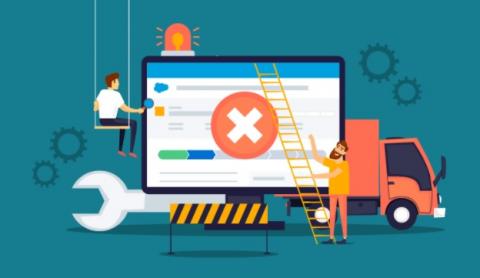Operations | Monitoring | ITSM | DevOps | Cloud
Featured Posts
Business Consulting Software (5 Factors To Consider)
Strategies to avoid downtime and maintain business continuity
What Is a DevOps Toolchain and How Does It Work?
Picture yourself trying to resolve a code error when you notice an additional issue outside your realm of expertise that's making matters worse. Your instinct is to get in touch with the right contact as quickly as possible to resolve the issue so that there's no further impact on the system's uptime. But what if you can't get in touch with them immediately, or don't know who to contact? Instead of trying to solve the problem without support, a DevOps toolchain could have mitigated this chain reaction from the start.
A SNMP-enabled temperature + humidity sensor for under $110
Monitoring temperature and humidity in a server room are quite important if you want to reduce the risk of expensive equipment failure. Yet, many server rooms either aren’t monitored at all or rely on ancient wall-thermostats that, in case of a problem, only emit desperate beeps that nobody will hear.
Top 5 Kubernetes Load-Testing Tools and How They Compare
It's not for nothing that Kubernetes is a popular choice for running a cloud workload. It can be a powerful tool for orchestrating your applications. However, one thing that can often be a last thought in a production workflow, or maybe forgotten altogether, is load testing. It might be tempting to think that Kubernetes can handle it all. In many cases it can, but it's always smart to know how much your application can take. After reading this article, you'll be equipped to determine which tools would best serve you for load testing your application.
What is MTTR? Resolve incidents faster through ops, alerting and documentation
When downtime strikes any distributed software deployment or platform, it's all hands on deck until the lights are green and service is restored. This process, from the recognition of a problem to a deployed solution, has most commonly been defined as MTTR - mean time to resolution. In just the last few years, DevOps and site reliability (SRE) professionals have developed sophisticated new models for how they work and audit their successes. In 2022, MTTR is one of the most widely-used software performance success metrics.
Just How Important Is Your Integration Infrastructure?
Most companies take their integration infrastructure for granted. I'm talking about middleware such as IBM MQ, Kafka, Solace, ActiveMQ, RabbitMQ. These form the basis of most enterprise-level businesses. One of our electronic manufacturing customers was building products worth $40K per minute. A failure in one of the factory floor's automated systems brought manufacturing operations to a complete halt.









